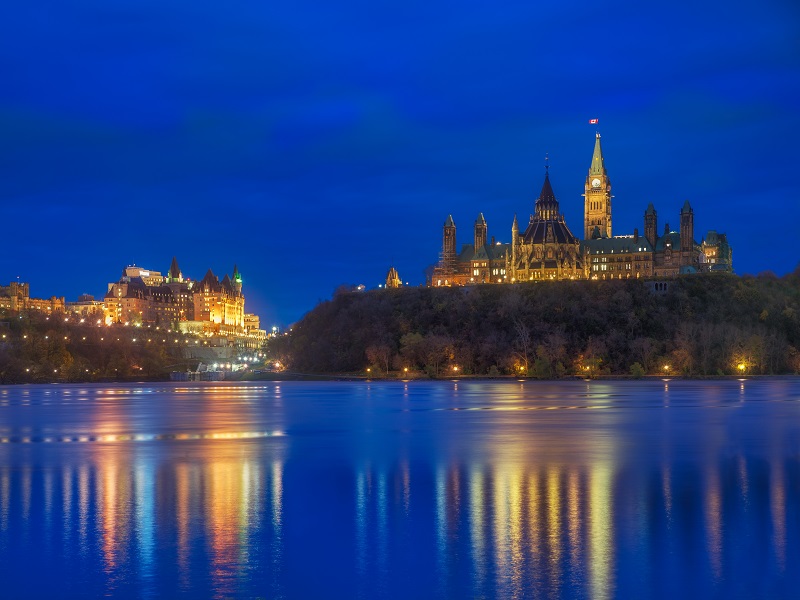

Government House leader Karina Gould warned Tuesday the Liberals are unlikely to get a pharmacare bill passed by the end of the year, despite their promise to do so in an agreement with the New Democratic Party.
“I don’t think we’re going to get it passed by the end of this year, but we’ll definitely keep working,” she said.
The Liberals promised to table and pass the legislation by the end of the year as part of a supply-and-confidence deal, in which the NDP is supporting the minority government on key votes in exchange for progress on shared priorities.
Read: Feds consider end of ‘30% rule’ for pensions, propose EI adoption benefit: fall economic statement
It’s now nearly impossible for a bill to pass before the holiday break, which begins in just three weeks. But the NDP appears to be willing to offer some wiggle room on the terms of the deal if it means the Liberals table a plan for a universal, single-payer drug program.
Prime Minister Justin Trudeau said the government is “ready to go” on putting forward legislation, but the government wants to make it happen in concert with the NDP. “We’re open to talking with them to try and make sure that it’s as ambitious as we can do, in the right way.”
Asked whether the government can afford a universal pharmacare program, Trudeau said the Liberals have already taken steps to lower drug prices in the country. “We will continue to work in responsible ways . . . to make sure that Canadians can afford to stay healthy.”
NDP House Leader Peter Julian said his party is hoping that a pharmacare bill can be introduced, if not passed, before the House rises in mid-December. “But the reality is that the government needs more time.”
Read: National pharmacare program will cost $40BN annually with shift of $14BN in private insurance
The negotiations are taking place as Ottawa pledges to install new fiscal guardrails that would keep deficits below one per cent of gross domestic product beginning in the 2026/27 financial year. Finance Minister Chrystia Freeland released a fall economic statement last Tuesday that outlined how little room the government will have to spend on big new programs until 2027 at the earliest. That’s the first year the government currently expects to post a deficit that’s smaller than one per cent of projected GDP.
Pharmacare didn’t merit a mention in the government’s budget update, but that doesn’t come as a surprise. The legislation won’t necessarily commit the government to actually launch a national pharmacare plan, so it doesn’t need to cost the government anything in the short term, says Marcel Saulnier, an associate with consultancy Santis Health who served as executive director for an advisory committee on the implementation of national pharmacare in 2018.
“I think the financial constraints right now are very significant and the political issues, both federally and between the feds and the provinces, make it challenging. I would imagine they would be aiming to create something that looks more like a framework that doesn’t necessarily have any money attached to it.”
Still, legislation alone won’t make prescription drugs any more available without additional federal investment and he worries the financial bind could prevent that from happening.
The Parliamentary Budget Officer estimated universal, single-payer pharmacare would cost the public sector an additional $11.2 billion if it were fully implemented next year, which would increase to $13.4 billion in 2027/28.
The PBO also found there would be economy-wide savings of $1.4 billion next year if the program was implemented, rising to $2.2 billion in 2027/28, thanks to the improved purchasing power of a single-payer system.
Scotiabank economist Rebekah Young is skeptical there’s enough fiscal room in the public purse for the added expense, unless the economic outlook changes. “The path they’ve set out doesn’t build in room for a full-blown pharmacare program. Maybe they go back to the drawing board and look at, ‘If we can’t afford a universal pharma, what’s the next best thing?’”
The Liberals promised to establish pharmacare during the 2019 election campaign and have taken some steps towards realizing that promise. The government appointed a transition office to create a Canadian Drug Agency and launched a national strategy for drugs to treat rare diseases.
If the government is intent on securing a deal with the NDP, it could always abandon the fiscal restraints it committed to this week, as it has in the past, says Livio Di Matteo, an economics professor at Lakehead University. “Most government spending plans [in] Canada at the federal level have not been limited by any deficit. They usually set guardrails and then exceed them anyway.”
Read: Liberals, NDP to move forward on dental-care program, national pharmacare
